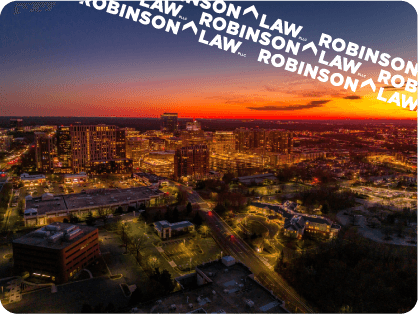Commonwealth of Virginia Successfully Argues to Reverse Suppression of Incriminating Statements | Robinson Law, PLLC
In a recent drug case before a Virginia court of appeals, the Commonwealth appealed a lower court’s ruling in the defendant’s favor. Originally, the defendant in this case was charged with illegal drug possession. He successfully argued that his incriminating statements he made to police officers should be suppressed at trial, but the Commonwealth challenged this lower court’s ruling. The higher court ended up agreeing with the Commonwealth and reversing the original ruling.
Facts of the Case
According to the opinion, two officers were on patrol one evening when they pulled the defendant over in a standard traffic stop. The defendant told the officers they were free to search the car, and the officers found a bag of white powder on one of the vehicle’s floorboards.
One of the officers began to conduct an arrest. When asked what was in the bag, the defendant readily admitted that it was “probably cocaine.” He also freely stated that he had a tool for smoking weed in his pocket. The officers put the defendant in their patrol car, gave him the required Miranda warnings, and asked again what was in the bag. The defendant admitted for a second time that the substance was cocaine.
The defendant was charged with drug possession, and at trial, he filed a motion to suppress the statements he made to the officers. The court suppressed the defendant’s statements, ruling that it would be a constitutional violation to admit both the statements made before the Miranda warnings and the statements made in the patrol vehicle. The Commonwealth appealed this decision.
The Decision
On appeal, the Commonwealth argued that the defendant’s statements were made voluntarily. When a defendant makes a declaration on his or her own volition, without being interrogated or coerced, those statements are admissible in court. The officers did not use improper tactics to obtain the statements, and it was thus reasonable for the court to enter the statements as evidence at trial.
Upon looking at the evidence, the court agreed that the defendant’s statements were made voluntarily. The officers were polite and they did not use threats or intimidation. The defendant was not under the influence of alcohol or any other substance, making him fully capable of forming the intent necessary to make a voluntary statement.
Given these factors, the court reversed the lower court’s ruling and decided that the defendant’s incriminating statements were admissible at trial.
Have You Been Charged with a Drug Crime in Fairfax County?
At Robinson Law, PLLC, we take the time to fully investigate the facts of your case so that we can offer personalized, aggressive solutions that are tailored to your needs. If you are facing criminal charges in Fairfax County, give our office a call today. We handle cases relating to driving under the influence (DUI), assault and battery, guns, domestic violence, and drugs. There is no charge too complex for us to handle, and we have 45 years of combined experience fighting for our clients’ right to be heard. For a free and confidential consultation, call us today at 703-542-3616.












